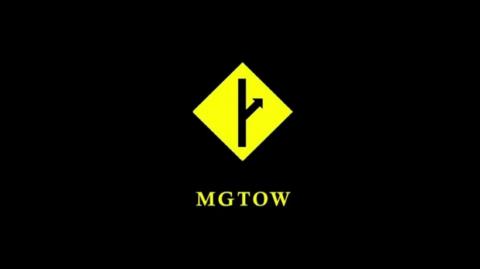On Capitalism - MGTOW
In this video I engage in a critique of capitalism. No, this video is not a defense of socialism.
Patreon
https://www.patreon.com/ground....work_for_the_metaphy
Paypal
https://www.paypal.com/cgi-bin..../webscr?cmd=_s-xclic
Script
http://www.gftmom.com/portfoli....o-item/on-capitalism
Capitalism. Few phenomena are more central to our lives. As MGTOW try to be intellectually reflective men, we should be interested in trying to get some critical perspective on capitalism. It can be said with little controversy that capitalism is a defining element of western culture. Mathew Arnold, a British poet and cultural critic, defined culture as: “A pursuit of our total perfection by means of getting to know on all matters which most concern us the best which has been thought and said in the world. And through this knowledge, turning a stream of fresh and free thought upon our stock notions and habits.”
My intention with this video is to put forward a brief, but not complete, critique of capitalism. But even here I must elaborate as to the meaning of my goal. It would not be unnatural to immediately suspect that by critique I must mean criticism, and then further conclude that for me to put forward a criticism of capitalism is to simultaneously and synonymously put forward a defense of socialism.
Yet neither are the case. In the first sense, I am not putting forward a criticism of capitalism but an exploratory exegesis on the subject itself. Another way to view this critique is to consider it as a very long story of what capitalism entails; namely, I plan to offer a value judgment free exposition of capitalism which will neither enumerate benefits or shortcomings as to frame the conversation in terms of benefits or shortcomings is to immediately inject value judgements into what I say about capitalism.
In the second sense, namely, that my motivations for a critique of capitalism must entail some defense of socialism is also incorrect. This very thought is itself illogical. Though capitalism is often juxtaposed conventionally as being an opposite to socialism, this is a failure in thought. What is the opposite of an apple? Is it an orange? Or is it chocolate? No. Apples, Oranges, and Chocolate do not have opposites. In this same way, capitalism and socialism do not have opposites less so that they are opposites of each other. It is through consistently hearing defenders of socialism posing critiques of capitalism, and defenders of capitalism posing critiques of socialism, by which these two are conventionally seen as opposites.
The truth is that both socialism and capitalism are independent entities that have certain irreconcilable differences yet also many similarities. Yet often we forget that there are alternatives to the two. After all, what would you call the guiding cultural force during the medieval period of Europe? Surely it was neither capitalism nor socialism.
So, I hope that by clarifying these two points around the spirit and motivation of this video, we can move on without suspicion as to its content.
Now, since I first picked up Nietzsche I became fascinated with his concept of genealogies of ideas; namely, following an idea backwards in time to what I would hope would be its origin. That is to say, I am interested in the history of ideas, with the people who articulate ideas, people that we usually call intellectuals, often times philosophers, but also writers, social scientists, and poets; people who try to think how things are held together, and how institutions and traditions are related to one another.
Capitalism was one of those subjects I recently became very interested in tracing. So, let me share with you some of the things I have come to discover. When people come to think about capitalism their first inclination is to turn to the business journals or to turn to economists to explain it to them. In business journals, we can read about which companies are more profitable and which are less so. We can learn which products people are buying and what new products are being released. We can find trends relating to employment, inflation, and so on.
Economists tend to focus on how one element of one market activity is related to other elements. For example, how money supply is related to inflation or how interest rates affect investment and consumer spending. However, while we tend to almost exclusively think of economics and economists when we think about capitalism, I would like to argue for the idea that there is a lot more to capitalism than economic issues. Capitalism is too important and complex to be left to the economists.
0



 Sandman
Sandman
 Zuberi87
Zuberi87

 4_ArchAngel
4_ArchAngel

 Shunya
Shunya
 James Von Maxwell
James Von Maxwell

 CanalMGTOWBrasil
CanalMGTOWBrasil

 Red Pill Mentor Tokyo
Red Pill Mentor Tokyo
 DIO DOOM NUTZ_TALICHADJESUS33
DIO DOOM NUTZ_TALICHADJESUS33




 profhugodegaris
profhugodegaris




Log in to comment